Japan Writers Conference: Steven Wolfson on “Cinematic Storytelling”
Posted by Tom Baker
Hollywood screenwriter Steven Wolfson gave a talk on “Cinematic Storytelling” at the Japan Writers Conference.
You can watch his presentation below, and find more JWC presentations — including several by former JETs — at the Japan Writers Conference YouTube Channel.
Also, if you are a writer who would like to give a presentation of your own at the 2022 Japan Writers Conference this October, you can submit a proposal at here. The deadline is June 1.
Japan Writers Conference: Barry Eisler gave a talk on “How to Write a Killer Opening”
Posted by Tom Baker
Best-selling thriller author Barry Eisler, who has lived in Japan and set some of his novels there, gave a talk on “How to Write a Killer Opening” at Japan Writers Conference.
You can watch his presentation below, and find more JWC presentations — including several by former JETs — at the Japan Writers Conference YouTube Channel.
Also, if you are a writer who would like to give a presentation of your own at the 2022 Japan Writers Conference this October, you can submit a proposal at http://japanwritersconference.org/submit-proposal/. The deadline is June 1.
Japan Writers Conference: Edward Levinson on finding inspiration in nature
Posted by Tom Baker
Memoirist, poet, photographer and filmmaker Edward Levinson lives on the Boso Peninsula of Chiba Prefecture, where he draws much inspiration from nature. He shared some insights in a talk, “Simple Nature Attunements,” that he gave at the Japan Writers Conference.
You can watch his presentation below, and find more JWC presentations — including several by former JETs — at the Japan Writers Conference YouTube Channel.
Also, if you are a writer who would like to give a presentation of your own at the 2022 Japan Writers Conference this October, you can submit a proposal here. The deadline is June 1.
JET alum writers: Charles Kowalski on creating characters
Posted by Tom Baker
Novelist and JET alum Charles Kowalski gave a psychologically insightful talk at the most recent Japan Writers Conference about “Personality Types and Character Arcs.”
You can watch his presentation below, and find more JWC presentations — including several by former JETs — at the Japan Writers Conference YouTube Channel.
Also, if you would like to give your own presentation at the 2022 Japan Writers Conference this October, you can submit a proposal here. The deadline is June 1.
JET alum writers: Joe Palermo on self-publishing his Japan memoir
.
Posted by Tom Baker
JET alum Joe Palermo (actually a trailblazing MEF) spoke at the Japan Writers Conference in October about self-publishing his memoir, “No Pianos, Pets or Foreigners.” You can watch his talk below, and find more JWC presentations — including several by former JETs — at the Japan Writers Conference YouTube Channel.
Author Todd Jay Leonard offers publishing tips at Japan Writers Conference
Posted by Tom Baker
JET alum Todd Jay Leonard will lead a poetry workshop at the Oct. 15-17 Japan Writers Conference, a free event that is happening online. The official description of his talk appears below.
Todd Jay Leonard
So you want to publish a book? 10 Basic Points to Keep in Mind!
Short Lecture with Q&A
Professor Leonard has published extensively over the past 30 years and is willing to share his experiences of both Japanese traditional publishing houses and POD formats to assist budding authors in their quests to get published.
This lecture will cover ten primary points that “potential” authors need to keep in mind when submitting a proposal to a publishing company or when self-publishing a book. He will outline the basic process from the book’s initial concept to getting the book into print to marketing it. His extensive experience in publishing as an author in Japan will serve to assist budding authors with the basics in the overall process that need to be considered when pursuing a publishing contract or when self-publishing. This is a short lecture with a Q & A format.
Todd Jay Leonard lives, writes, and teaches on the southern island of Kyushu, where he is a university professor at the University of Teacher Education Fukuoka. He has published extensively in academic journals, magazines, and newspapers on cross-cultural, historical, and Teaching English as a Foreign Language (TEFL) themes. He is the author of 25 books.
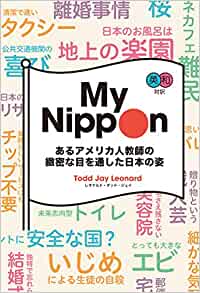
Joy Jarman-Walsh to teach interviewing at Japan Writers Workshop
Posted by Tom Baker
JET alum Joy Jarman-Walsh will give a presentation on how to conduct an interview at the Japan Writers Conference, a free event that is happening online this year. The official description of her talk appears below.
Joy Jarman-Walsh
Live + Engaging Networking via Interviews with Japan Insiders
Short Lecture with Q&A
Moving beyond words on a page by live broadcasting interviews to a worldwide audience in real time – it seems daunting but is transparent and engaging, reaching new audiences tired of traditional media. If you are researching an article, you are actually prepared to livestream- let me explain how to do it, and why it’ll make your content better.
I’ve been on a crazy and unexpected journey researching and hosting daily interviews with various experts and insiders in Japan, or abroad who are focused on Japan, to dive into what it means to seek sustainability. A big part of seeking sustainability is transparency, which I think is also critical for good writing, which can be achieved by engaging with your audience as you create the content. I believe that one of the best ways to do this is by livestreaming content to engage with a wider audience. As of the end of May, I’ve done over 250 live interviews and the comments and questions of live viewers has been an important aspect of the finished product. I think this concept can inform and improve almost any type of writing project. There are key strategies to prepping for interviews as well as running live talkshows which engage with a live audience. There is also post-production work that needs to be done, including getting the interview onto a podcast platform. I will lay out not only the why’s but also the how-to’s of the process.
Joy Jarman-Walsh (jjwalsh) runs a daily livestream talkshow called #SeekingSustainabilityLive which had it’s 250th episode in May 2021. Joy co-founded GetHiroshima in 1999, worked as an Assistant Professor teaching Tourism and Business for more than 21 years, then started her own sustainability-focused travel consulting business, InboundAmbassador, in 2019. Joy has written for academic journals as well as travel copy and destination articles. Joy has an MA in Sustainable Tourism from ASU (USA).
Tom Baker shares tips on writing a pub quiz at Japan Writers Conference
Posted by Tom Baker
JET alum and Jeopardy champion Tom Baker will lead offer tips on how to write trivia questions at the Oct. 15-17 Japan Writers Conference, a free event that is happening online. The official description of his talk appears below.
Tom Baker
Trivia Tips: How to Write a Pub Quiz
Short Lecture with Q&A
“I once attended a pub quiz in Bristol where a dispute over an answer resulted in a wild west-style brawl and the police had to be called,” a woman told the BBC in 2005. “Arrests were made, including the quizmaster.”
Quizzes should be fun. If you wish to host one that doesn’t end in tears – or behind bars – well-written questions are essential.
Drawing on my experience as both a contestant and a quizmaster, I will offer tips on how to write questions that are clear, entertaining, and minimally disputable.
Using examples from quizzes seen on TV and at pubs around Tokyo, I will discuss a variety of question formats, writing with brevity and clarity, ways of organizing categories, anticipating hecklers and nit-pickers, making obscure questions guessable, and the importance of flattering your audience by writing easy questions that sound hard.
Tom Baker appeared on four regular-season episodes of the U.S. quiz show “Jeopardy!” in 2004, before returning for the season-ending Tournament of Champions. He first guest-hosted a round of a Tokyo pub quiz in 2019, and has written and presented more than 20 rounds since then. Topics have included “The FBI 10 Most Wanted List,” “Pigs and Rats,” “Literary Works,” “Officeholders,” “Prime Numbers,” “Traveling Around Japan,” “Body Parts” and “Motorcycle Gangs and Clubs.”
For details, visit http://japanwritersconference.org/
Michael Frazier to lead poetry workshop at Japan Writers Conference
Posted by Tom Baker
JET poet Michael Frazier will lead a poetry workshop at the Oct. 15-17 Japan Writers Conference, a free event that is happening online. The official description of his talk appears below.
Michael Frazier
A Poem is a Thing that Moves: Contemporary Lyric Poems
Craft Workshop
Poetry
A lyric poem is a thing that moves, through time, one’s mind, and, in turn, moves the hearts of readers. We will read and analyze lyric poems that move towards unanswerable questions, via associative jumps, by Leila Chatti, Li-Young Lee, and Aracelis Girmay. We will write our own lyric poems!
Scan through most recently released poetry collections and you are bound to find poems marked not by chronological narratives, but by incongruent images, ideas, and questions seemingly held together by only a distinct first-person voice and the magic of poetry. In this workshop we want to dispel the illusion of the non-linear lyric poem. We will read a handful of lyric poems that rely on associative jumps by Leila Chatti, L-Young Lee, Terrance Hayes, and Aracelis Girmay. We will analyze how these writers navigate through a poem (motifs, music, etc.), and pursue a question to arrive at a new revelation (the turn). As a result, we will understand how their poems are maps for how their actual minds move and perceive the world. A poem is a thing that moves, through time, one’s mind, and, in turn, moves the hearts of readers. Under scaffolded prompting, we will write our own lyric poems that prioritize the patterns of our psyche.
Michael Frazier is a poet & HS Teacher living in Kanazawa, Japan. Pushcart Prize & Best New Poets nominated, his poems appear in Poetry Daily, The Offing, RHINO, Tinderbox, Tokyo Poetry Journal, and elsewhere. Currently, he’s facilitating a biweekly zoom poetry book club open to the public. Message @fraziermichael to join!
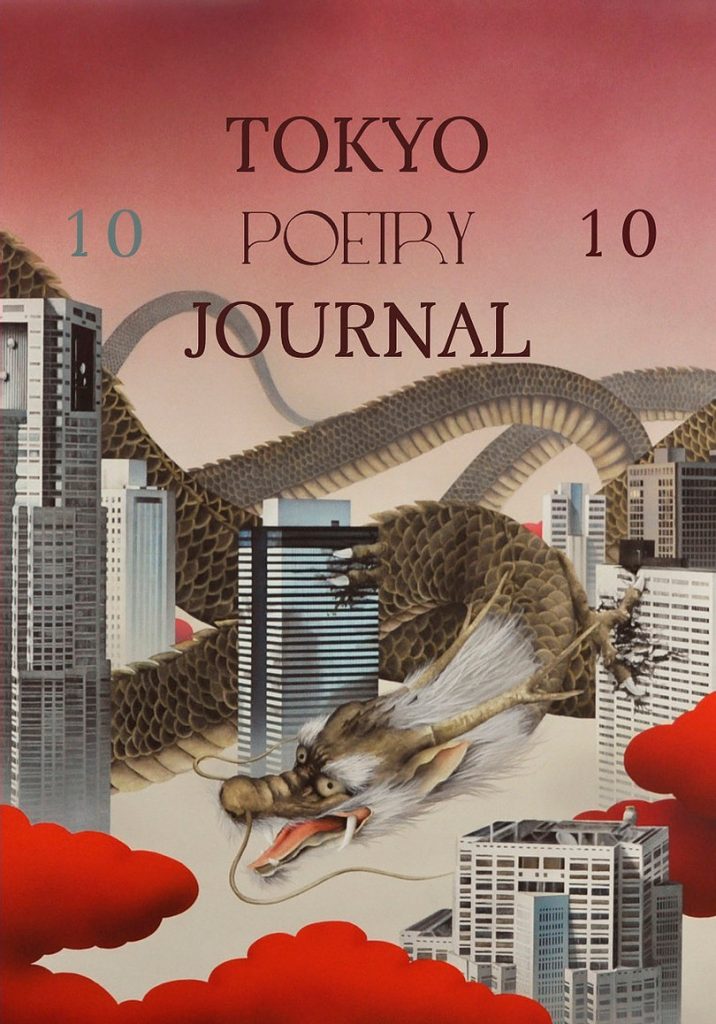
Author Suzanne Kamata to host panel discussion on identity at Japan Writers Conference
Posted by Tom Baker
JET alum Suzanne Kamata will lead a panel discussion on “Writing Identity” at the Oct. 15-17 Japan Writers Conference, a free event that is happening online. Suzanne is the author of multiple novels and nonfiction books, which you can read about at www.suzannekamata.com. The official descriptions of her talk appears below.
Suzanne Kamata
with Clara Kiyoko Kumagain, Kristin Osani, Clarissa Goenawan, Sara Fujimura
Writing Identity, From Inside and Outside
Panel Discussion
Fiction
Identity politics play a large part in determining which stories are published and how they are currently received in the English-speaking market. Generation Z readers — the audience for YA and New Adult titles — are especially aware of issues surrounding diversity, appropriation, and ownership. In this session, to be moderated by Suzanne Kamata, four authors of different backgrounds, writing about Japan from inside and out of their lanes, will discuss diversity, identity, inclusivity, and their own experiences and approaches to writing these in their own work.
In this era of #ownvoices and a heightened awareness of identity politics, what stories should be told, who should be allowed to write them, and how they should be presented are often contentious issues. In this moderated session, five authors of different backgrounds, writing inside and out of their lanes, will discuss diversity, identity, inclusivity, and their own experiences and approaches to writing these in their own work.
Award-winning author Suzanne Kamata was born and raised in the United States, but has lived in Japan for more than half of her life. She is the author or editor of 15 published books including, most recently, The Baseball Widow (Wyatt-Mackenzie Publishing, 2021) and Pop Flies, Robo-pets and Other Disasters (One Elm Books, 2020).
Clara Kiyoko Kumagai is from Canada, Japan and Ireland. She writes fiction and non-fiction for children and adults, and has had work published in Banshee, Room, Event, and Cicada. She currently lives in Tokyo.
Kristin Osani @KristinOsani is a freelance Japanese to English translator, writer, and editor
Her previous projects include Left Alive, Oninaki, Code Shifter, Dragalia Lost, and many more. Her short fiction is forthcoming in Flash Point SF.
Clarissa Goenawan is an Indonesian-born Singaporean writer. Her award-winning short fiction has appeared in literary magazines and anthologies in Singapore, Australia, Japan, Indonesia, the UK, and the US. Rainbirds, her first novel, has been published in eleven different languages.
Sara Fujimura @SaraFujimura is an award-winning young adult author and creative writing teacher. She is the American half of her Japanese-American family, and has written about Japanese culture and raising bicultural children for such magazines as Appleseeds, Learning Through History, East West, and Mothering, as well as travel-related articles for To Japan With Love. Her young adult novels include Tanabata Wish, Breathe, Every Reason We Shouldn’t (Tor Teen, 2020) and Faking Reality (Tor Teen, 2021). She lives in Phoenix with her husband and children.
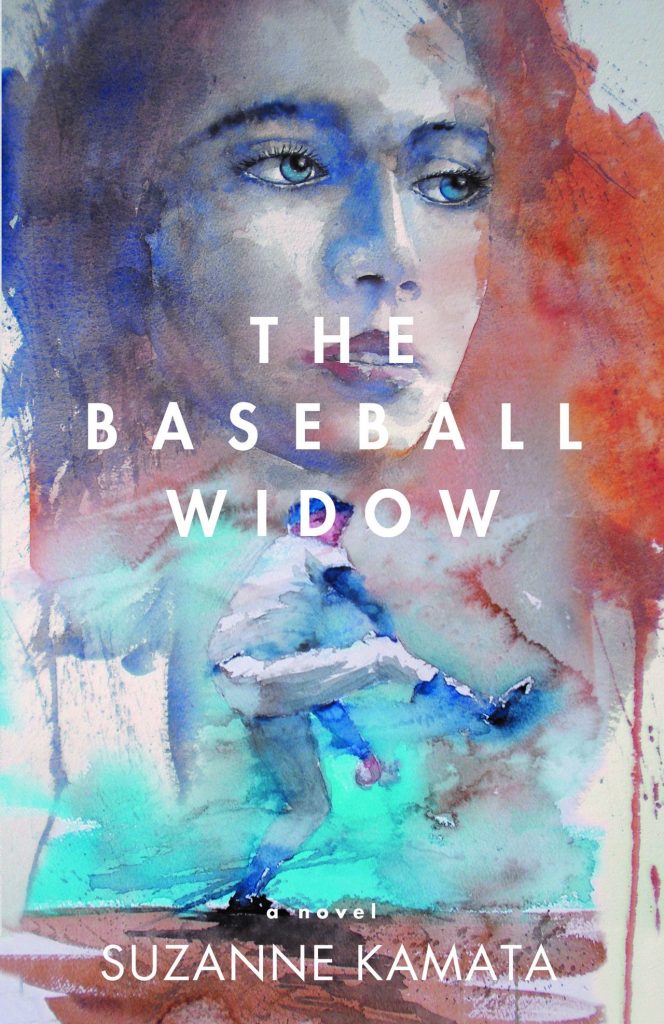
Posted by Tom Baker
In non-pandemic years, the Japan Writers Conference is held on an autumn weekend at a university somewhere in Japan. This year it is being held online (Oct. 15-17), which means you can participate no matter where in the world you are.
At least nine JETs (including classic-edition MEFs) will be among the published writers giving presentations on how to write well – and how to sell your work. These include memoirist Joe Palermo, poet Michael Frazier, poet and picture book author Holly Thompson, textbook author Todd Jay Leonard, and travel consultant Joy Jarman-Walsh. More JET alums are mentioned in the (slightly JET-edited) official press release below:
Published writers to share how they did it
TOKYO (Sept. 14, 2021) – The Japan Writers Conference has announced a lineup of more than 30 presentations by published writers in a variety of fields, from food writing to screenwriting and from to novels to haiku, for its 15th annual event on Oct. 15-17.
Due to the pandemic, this year’s conference will be held online, with Zoom details to be made available at http://japanwritersconference.org/email-updates/. As always, it will be a free, interactive event open to all who are interested in the art, craft and business of writing.
Poetry, memoir, fiction and publishing will be major themes. Tokyo Poetry Journal associate editor Zoria Petkoska will discuss how technology enables “cyber poetry,” while noted haikuist Michael Dylan Welch will look into the past to examine the use of place names. Karen Hill Anton and Lianne Wakabayashi will discuss crafting their Japan-related memoirs. Novelist and JET Joanne Anderton will explore mixing autobiography into speculative fiction, while novelists Charles Kowalski (another JET) and Michael Pronko will speak about creating characters. Multiple writers will share tips on both traditional publishing and self-publishing.
Astrophysicist and author Elizabeth Tasker will participate in a panel discussion on “Social Media for Writers,” while young adult novelist Sara Fujimura will join a panel on “Writing Identity.” Prominent multi-genre author – and JET – Suzanne Kamata will be part of both panels.
For more variety, journalist Melinda Joe will serve up the basics of food writing, photographer Edward Levinson will discuss finding inspiration in nature, filmmaker Yuri Kageyama will premiere a work on the Fukushima nuclear disaster, and “Jeopardy!” quiz show champion Tom Baker, still another JET, will describe how to write trivia questions. And that’s far from all.
Details on this year’s event can be found at http://www.japanwritersconference.org
Inquiries should be directed to japanwritersconference@gmail.com.
Japan Writers Conference seeking presenters for 2021
Posted by Tom Baker (Chiba 1989-91)
The 15th annual Japan Writers Conference will be held in October this year. The organizers are now looking for writers, editors and publishers to give presentations on the art, craft and business of writing. If you are a writer, now is a good time to think about taking part.
The conference is a free event, held in English. It covers publishable writing of all types: poetry, fiction, journalism, memoir, translation and more.
Past presenters have included best-selling thriller author Barry Eisler, Edgar-winning mystery novelist Naomi Hirahara and “Slumdog Millionaire” creator Vikas Swarup. There have also been presentations by many JET writers over the years, including poets Warren Decker and Michael Frazier, novelists Percival Constantine and Benjamin Martin, journalists Elaine Lies and Tom Baker, textbook author Todd Jay Leonard, and writing renaissance woman Suzanne Kamata. This year’s event will be cohosted by JET alum and novelist Charles Kowalski, together with nonfiction writer Joan Bailey.
Here are the official details:
::::::::::::::::::::::::::::::::::::::::::::::::::::::::::::::::
The 2021 Japan Writers Conference will be at Tokai University, Shonan Campus in Hiratsuka, Kanagawa, on Saturday, October 16th and Sunday, October 17th, 2020. Hiratsuka is on Sagami Bay, not far from Odawara. As in the past, the conference will be free and open to all who wish to attend. Please mark your calendars and plan to join in. As the COVID-19 pandemic is still with us, there is a possibility we’ll have to move online again this year, or it may be a hybrid, with some sessions held live, some online.
All published writers, translators, editors, agents and publishers are welcome to submit presentation proposals for the 2021 Japan Writers Conference. The deadline for your proposal is Tuesday, June 1, 2021.
Please send your proposals via this page on the JWC website: http://japanwritersconference.org/submit-proposal/
We especially encourage proposals from new submitters. One of our strengths has been variety, and the best way to foster variety is to have new presenters each year.
When planning your JWC proposal, keep your audience in mind. Your listeners will be writers and others (translators, editors, publishers, and agents) concerned with creating publishable writing. While teaching, literary studies and private self-expression are all worthy activities, they are not the focus of this conference.
Standard conference sessions are fifty minutes long, but if you have something longer in mind, please let us know and we will accommodate if possible.
To submit a proposal for a conference presentation, send the following information, using the form here to submit: http://japanwritersconference.org/submit-proposal/
1. Your name (or names)
2. Title of presentation (20 words or less)
3. Type of presentation (short lecture with Q&A, craft workshop, panel discussion, reading with Q&A, etc.)
4. Genre (Fiction, Poetry, Nonfiction, Translation, Instructional, Career)
5. Short summary (50 words or less)
6. Abstract (150 words or less)
7. Personal and professional biography (50 words or less. Mention your publications, as this will be part of the Conference program)
8. Your publications (Need not be complete, but give names of journals and genre for short pieces; title, publisher and date for books; venues and dates for plays, and so on)
9. Are you available on both days?
10. Any special needs?
11. Contact information (email address, telephone number) These remain confidential. Please include everyone who will be part of the presentation.
If you are unable to use the website form, or
have questions concerning your idea or the conference in general, you may use this email address: japanwritersconference@gmail.com
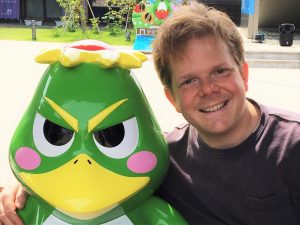
Novelist and JET alum Charles Kowalski will be one of the hosts of the 2021 Japan Writers Conference.
Warren Decker and Michael Frazier to lead poetry workshops at Japan Writers Conference
Posted by Tom Baker
Warren Decker and Michael Frazier are two JET poets living in Japan who will each be hosting a workshop at the Oct. 10-11 Japan Writers Conference. This year’s conference is being held online, so you don’t need to be in Japan to attend. For details, see http://japanwritersconference.org. Official descriptions of the workshops appear below.
Warren Decker
Pterodactylic Pentagrameter: Working with Rhyme and Meter
Craft Workshop
Poetry
In this workshop we will focus on poetry that incorporates rhyme and meter. As a participant, please bring 2-10 lines of rhymed and metered poetry for us to discuss. Please also be ready to share your unique techniques for finding the right meter and rhymes for your poetic lines.
Paradoxically, the confines of rhyme and meter can often serve to open unexpected creative doors. One who sets out to write about “fractals” may find “pterodactyls” swooping into their poem. Maintaining a regular pattern of stressed and unstressed beats might lead a poet—after many hours at the keyboard—feeling as though a supernatural rhythmic force is guiding them to choose the perfect words and in the perfect order.
In this workshop, while looking at specific examples of rhyme and meter as exhibited in the participants’ samples, we will collectively attempt to recall the wonderful technical terminology describing syllabic meter (for example: “iambic pentameter,” and “dactylic tetrameter”), but also consider looser and more intuitive accentual poetic rhythms.
Furthermore, we will discuss the incredible variation contained within the seemingly simple concept of “rhyme,” focusing on concrete examples to understand how and why certain rhymes work.
Warren Decker has published poetry, fiction and non-fiction in The Best American Poetry 2018, NOON, The Font, Frogpond, Modern Haiku, Acorn, The New Ohio Review, THINK, Sou’wester, Fifth Wednesday, and several other online and print journals. He also performs his poetry online and in front of live audiences in Osaka.
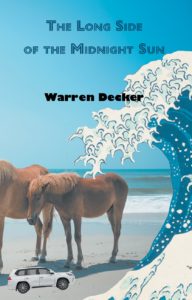
Michael Frazier
I AM MY FAMILY (a persona workshop)
Craft Workshop
Poetry
This is a poetry workshop (open to writers of all genres) who are interested in writing about and through their family. We will use the persona form—writing in the voice of family members—to interrogate ourselves. Some poets we’ll look at include Natalie Diaz, Paul Tran, and Julian Randall.
No one can move forward without looking back at where they’ve come from. This is the principle that guides this workshop. Persona poetry is poetry in the voice of someone, or thing, other than ourselves: shiba inu, wild iris, Sailor Moon, Kanye West, or even your bed. We will use the persona to focus on and interrogate our own families and make meaning out of the relationships that have formed us. In order to embody the voices of our family (biological or chosen) we must practice radical empathy. While a persona is in the voice of someone else, my hope is that in the poems we will write, we will turn inwards and learn something new about ourselves. We will look at writers who wield the persona and voices of their family with urgency like Paul Tran, Yalie Kamara, Hiwot Adilow, K-Ming Chang, Natalie Diaz, and Eduardo C. Corral.
Michael Frazier is a poet in Kanazawa. He graduated from NYU, where he was the 2017 poet commencement speaker & co-champion of CUPSI. He’s performed at venues including Nuyorican Poets Café & Lincoln Center. On staff at The Adroit Journal, his poems appear in COUNTERCLOCK, Construction, Visible Poetry Project, among others.
Japan Writers Conference: Todd Jay Leonard discusses the EFL textbook market
Posted by Tom Baker
Textbook author Todd Jay is one of the JET alumni writers who will be giving presentations at the 2020 Japan Writers Conference. Due to the coronavirus, this year’s event is being held online, so you can Zoom in from wherever you are. For details, see http://japanwritersconference.org. Here’s the official description of his presentation:
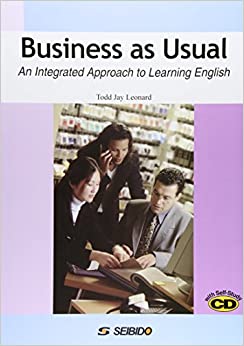
Todd Jay Leonard
Publishing in the EFL Market in Japan: Four Perspectives on How to Make your Proposal Count
Short lecture with Q & A
Career
This presentation will outline the current publishing market in Japan for EFL/ESL textbooks by reviewing the various points of views of the publishing industry. The presenter has published extensively within the ESL/EFL market in Japan and will offer helpful advice to budding authors who wish to pursue projects geared to Japan’s domestic market.
Most likely, every language teacher in Japan has (at some point during his/her tenure) contemplated writing a textbook to fill a void in the market…in that constant search for the perfect, all encompassing textbook.
In today’s competitive publishing world, getting the proverbial “foot in the door” can seem daunting and nearly impossible. What are publishers looking for in the current market? What appeals to editors who ultimately decide which titles go to production and which ones do not? What are the salespeople on the front lines hearing from their market base? What must an author do in order to get his/her book published?
This presentation focuses on these very questions, offering inside insights from all the various points of view that must be considered when writing a proposal to publish a textbook–the publisher, the editor, the salesperson, and the author. Professor Leonard explains the realities within the publishing industry and addresses some common myths associated with EFL publishing.
Todd Jay Leonard has been actively involved in book publishing for thirty years. He is the author of 22 books. He has published books with a number of different Japanese publishing companies. He lives, writes, and teaches on the southern island of Kyushu, where he is a university professor at University of Teacher Education Fukuoka. He has also published extensively in academic journals, magazines, and newspapers on cross-cultural, historical, and Teaching English as a Foreign Language (TEFL) themes.
Japan Writers Conference: Suzanne Kamata speaks on writing about characters with disabilities
Posted by Tom Baker
Prolific author Suzanne Kamata is one of several JET alumni writers who will be giving presentations at the 2020 Japan Writers Conference. Due to the coronavirus, this year’s event is being held online, so you can Zoom in from wherever you are. For details, see http://japanwritersconference.org. Here’s the official description of Suzanne’s presentation:
Suzanne Kamata
Wheelchair User or Wheelchair-bound?: Writing About Disability
Short Lecture with Q&A
Fiction, Nonfiction
In this session, I will discuss positive and problematic representations of persons with disabilities in literature, including my own work, with a view to developing better awareness.
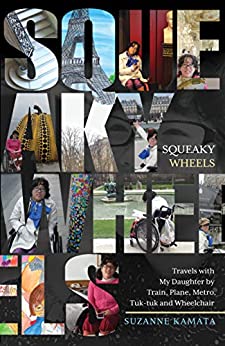
With the approach of the 2021 Tokyo Paralympics (hopefully), people with disabilities in Japan have been given more attention than perhaps ever before. English textbooks for Japanese children now frequently include stories about or representations of people with disabilities. Worldwide, initiatives such as #weneeddiversebooks and the call for #ownvoices have led to an increase of books featuring characters with disabilities. That said, some of these representations, and the way that they are discussed remain problematic. When do stories about disability become “inspiration porn”? What kind of language should we use when discussing disability? Who has the right to tell these stories? In this session, I will address these questions, using examples from recently published Japanese textbooks and literature featuring children in Japan and other countries, including my own work.
Suzanne Kamata is the award-winning author or editor of twelve published books including Love You to Pieces: Creative Writers on Raising a Child with Special Needs (Beacon Press, 2008), Gadget Girl: The Art of Being Invisible (GemmaMedia, 2013), A Girls’ Guide to the Islands (Gemma Open Door, 2017), Squeaky Wheels: Travels with My Daughter by Train, Plane, Metro, Tuk-tuk and Wheelchair (Wyatt-Mackenzie Publishing, 2019), and Indigo Girl (GemmaMedia, 2019). She is an Associate Professor at Naruto University of Education.

